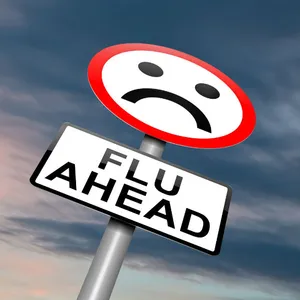
This particularly nasty flu virus is also called influenza type A and it affects pigs as well as humans with the following symptoms, including:
1. Body aches and chills
When the flu sets in, we often know it’s got us in its clutches by the discomforting body aches, pains, and chills. Well these symptoms are one of the first signs of swine flu.
2. Weakness or general fatigue
With achy bones and joints, comes weakness or fatigue that will last a few days later but this feeling can be banished with over-the-counter pain killers like ibuprofen.
3. Loss of thirst
With the flu, you’ll often not want to eat or drink anything. However, you will delay recovery time if you’re not thirsty and not urinating often either. Try to drink fluids like water and herbal teas to stay hydrated.
4. Fever
A fever is common with flu viruses, and with the swine flu (just like other flu), if you become feverish it’s your body attempting to fight off a bug in your immune system. A swine flu fever can be pretty severe, spiking at 100-degrees, but this should gradually subside as the virus runs its course. During a high fever it’s best for your recovery to get plenty of rest and drink lots of fluids to bring the fever down. You can also interchange ibuprofen and acetaminophen to break your fever. If a high fever persists, seek medical treatment as soon as possible.
5. Breathing difficulties
Swine flu in humans is generally harmless, however, if you have weakened immune system, an unrelated health condition, or are elderly or very young, common symptoms such as cough, sore throat, runny nose, and chest congestion can turn into more serious upper respiratory difficulties—such as bronchitis, asthma attacks, bronchial spasms, respiratory failure, or even pneumonia. If you have trouble breathing, consult with a doctor immediately and seek an antibiotic to help you recover safely.
Source: Livestrong



